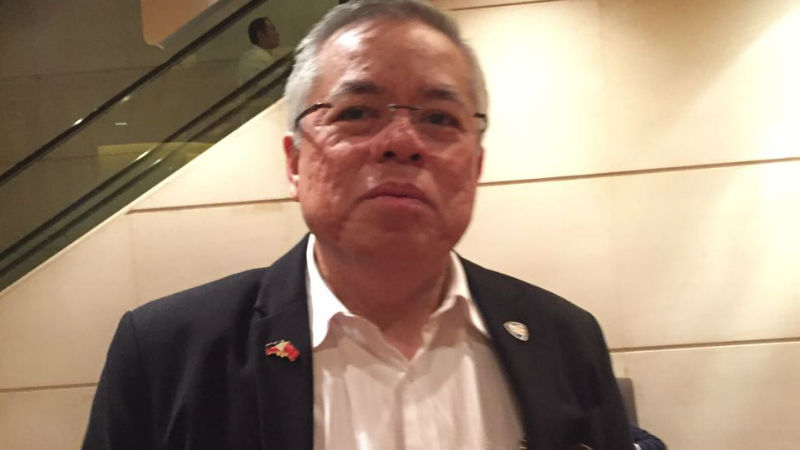Trade and Industry Secretary Ramon Lopez warned of a “strong reaction” from the Duterte administration if the European Union (EU) would interfere in the Philippines’ domestic affairs, reiterating the government’s threat that it would be willing to cut trade ties when pushed to a corner.
In his speech before an audience of the European and Philippine businessmen at the EU-Philippines Business Summit yesterday, Lopez called for mutual respect for each other’s sovereignty.
This comes on the heels of last week’s confusion in Malacañang that led to President Duterte threatening EU country ambassadors to leave the country within 24 hours.
The call was triggered by a group of EU parliamentarians who criticized the administration’s bloody war on drugs and political prosecution of opposition. The EU has disassociated itself from the group’s comments, noting that those did not represent the official position of the bloc.
Before Lopez delivered his speech during the summit, EU Ambassador Franz Jessen said in the same event that he remained confident in the bloc’s relationship with the Philippines. He said that Philippine exports to the EU could even “exceed $10 billion” this year, marking a growth of more 50 percent from 2016.
On the sidelines of the summit, Lopez told reporters that he hoped the Philippines would never be put in a situation wherein it would be subjected to EU’s interference. When asked what he meant by a strong reaction, Lopez referred back to Mr. Duterte’s previous comments.
“I just made it clear that that would be our position if there is an interference. It’s good that [the group] was not an EU-sanctioned group. Obviously, that would affect [trade negotiations] if and when that [interference] happens. But hopefully, it doesn’t. Hopefully, that so-called interference won’t happen,” he said.
European Chamber of Commerce in the Philippines (ECCP) president Guenter Taus told reporters that the business group had grown “immune” against such unpredictable and often controversial comments from Mr. Duterte.
“We know rhetoric is rhetoric and we have taken it with a smile. We have issued a statement that is very loud and clear. The issue has been addressed adequately and I think that should be the end of it,” he said, referring to EU’s statement disowning the comments of the EU parliamentarians who recently visited the country.
EU’s Jessen said that the bloc had seen a “significant increase” in EU imports last year from all over the world, including the Philippines, as part of the bloc’s economic expansion.
According to the Philippine Statistics Authority (PSA), Philippine exports to EU reached $6.78 billion in 2016, marking it as one of the country’s biggest trading partners last year. Based on Mr. Jessen’s estimates, this is expected to grow even more than half by yearend after trade statistics showed good figures so far.
“We now expect that exports from the Philippines to the EU will exceed $10 billion this year. It is very large because of the very high growth rate. In fact, we are the fastest growing export market for the Philippines among any of your markets,” he said yesterday.
He later added on the sidelines of the summit that the increase in agricultural food exports would help drive the country in exceeding the $10-billion mark.
While he did not specify how much of this value would enter the EU bloc through the current preferential arrangement with the Philippines, government officials have often cited the Generalized System of Preference Plus (GSP+) as an important asset in the country’s exports to the bloc.
The GSP+ allows zero tariffs on more than 6,000 Philippine products that are exported to the EU. This perk, which only a few countries enjoy and the Philippines being the only Asean nation to benefit from it, is given on condition that the beneficiary state adheres to certain international conventions, including one concerning human rights.
Since being granted the status in December 2014, the utilization rate of the perk has been increasing on a yearly basis. According to data from DTI, utilization rate in 2015 has been 68.3 percent, which rose to 70.87 percent last year. Moreover, according to Eurostat data, the statistical office of the EU bloc, the Philippines exported 1.7 billion euros worth of products under the GSP+ scheme last year, a nearly a 10-percent increase from 2015.
